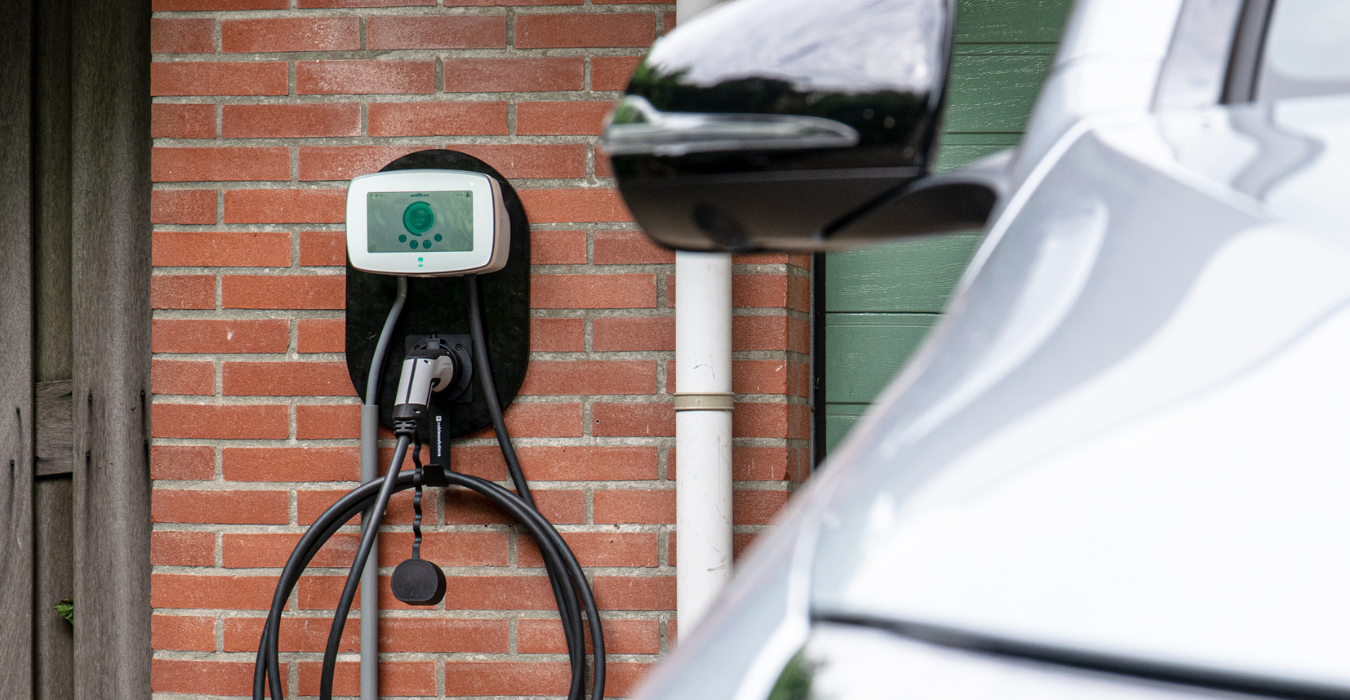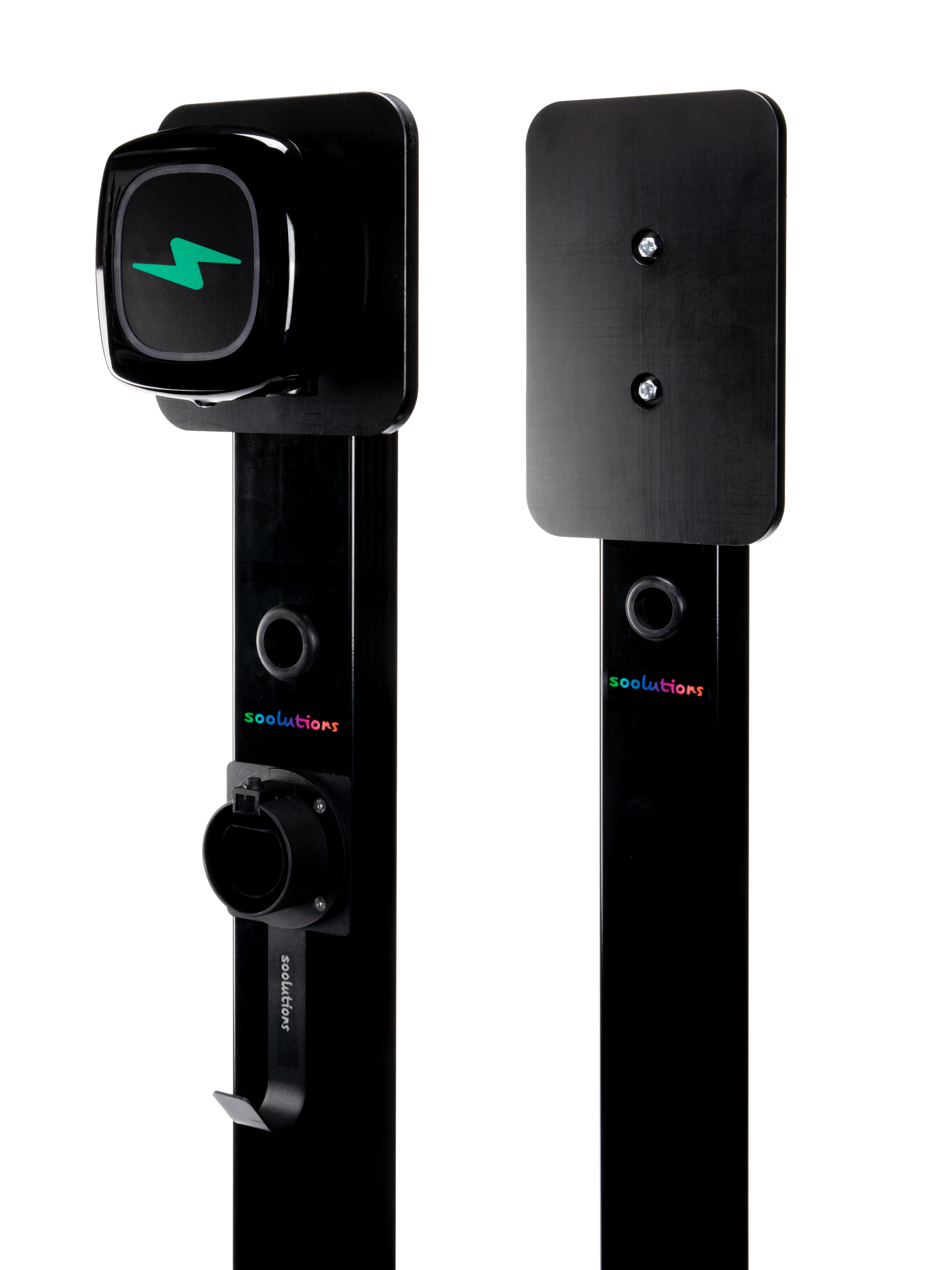The points to consider when buying a charge point

Your electric car has been delivered to you. Now what? How does charging actually work? Which charging station is the right one and what do I need to consider when buying it? In this article we will explain the most important points.
1. What charging capacity does my charging station need and how fast can my EV charge?
Some electric cars charge faster than others. The required power varies from 3.7 kW (single-phase) to 22 kW (three-phase), depending on the built-in charger of the electric car. The charging speed depends on three factors. These can be the electric car, the charging station or the meter connection. In fact, you can almost always connect everything together in terms of charging speed, but it is ultimately the weakest link that determines the charging speed. If your house has a single-phase connection, but your charging station has a three-phase connection and so does your car, then your EV will only be charged with a single-phase connection. If your car has only a single-phase inverter on board and your meter box is three-phase like your charging station, your EV will still only be charged with a single-phase connection. So make sure that all charging speeds are in line with each other.
2. What plugs does my electric car have?
In Europe there are two different standard plug types for (public) charging posts - type 1 and type 2. For example, if you have an electric car with a Type 2 plug, this means you can use a charging station with a permanently connected charging cable. Almost all of these have a Type 2 plug. A Nissan Leaf with a type 1 plug, however, cannot be charged at this charging station with a type 2 plug. It can only be charged at this station with the right adapter. (NL link: https://www.cablesoolutions.shop/nl/type-1-auto-naar-type-2-kabel-aangesloten-station.html)
3. Which brand of charging station is right for me?
When you choose a charging station for your electric car, make sure that it is made by a reputable manufacturer. This will ensure compatibility with your electric car. It will also ensure that the manufacturer ensures that future updates, services or replacement parts are available for your charging station.
4. Additional features and accessories: everything you need to know, from billing to access restrictions
Billing: If you want to make your electric charging station accessible to third parties but still charge for the electricity, or if you use an EV as a company car, a billing function for the charged electricity is recommended. There are various possibilities, depending on the application situation - from a kWh meter in the charging station that can be read regularly to smart solutions with automatic billing via an OCPP service provider. Automatic billing, however, often requires a small subscription fee of around EUR 5 per month.
Integration of photovoltaic systems: do you have solar panels on your roof for generating electricity? Then you have the option of using the self-generated electricity for your electric car. That is not only sustainable, but also economical.
Wall brackets and plug holders: Cable hangers are highly recommended for any charging station. These are sometimes supplied as standard with the charging station, but can also be purchased as an accessory. The charging cable can be neatly hung on the cable hanger when not in use and prevents you from accidentally driving over the cable when it is lying on the ground, for example.
Load balancing for electric cars: Many charging stations can be integrated with a load balancing system, sometimes called a power booster, via an extra module. If your home electricity network is not strong enough to be used by several charging stations at the same time and/or to charge several cars, the charging capacity is reduced to ensure that everything runs safely. If only one car is charged at a charging station, this means that the full charging capacity is available.
5. Installation
Proper installation of an electric car charging station can only be carried out by a qualified electrician. Before using an existing domestic socket for charging your electric car, it is particularly important to have the sockets and cables in older buildings checked to ensure that charging can take place at full power for a period of several hours.
- Are you still unable to figure out which product you need? Do not hesitate and contact us. We will help you as well as possible to find a suitable product to load your car.
- Call: +31 (0) 85-06 04 784
- E-mail: [email protected]
- directly in contact
Soolutions?

